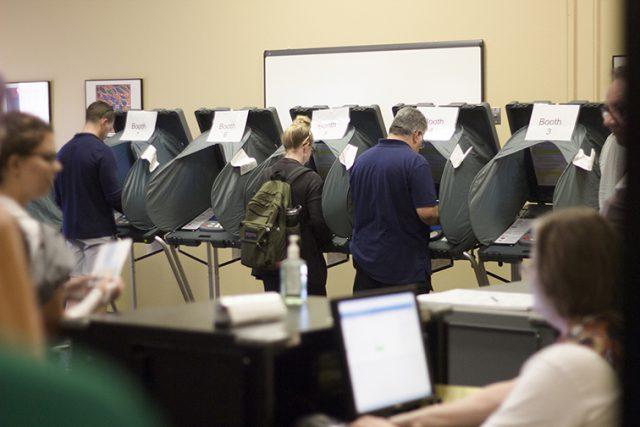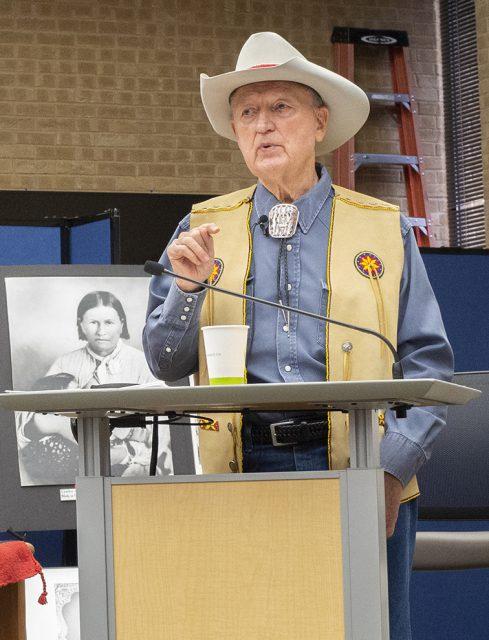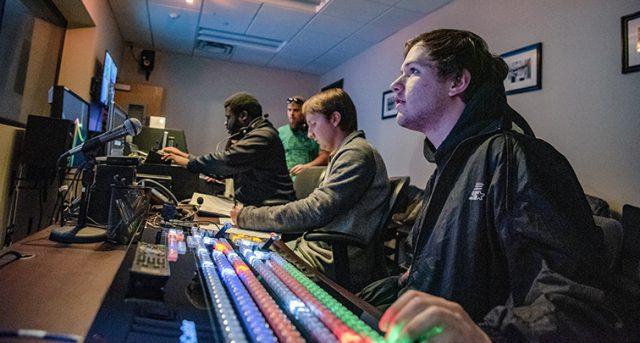| November 13, 2019 | Victor Allison | reporter |
|---|
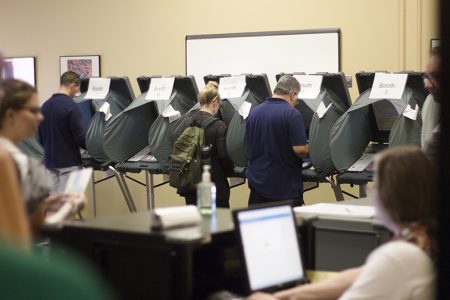
More than 1,000 voters made their ways to NE and NW polling locations in 2018 to cast their ballots in the midterm election.
On Sep. 1, Texas lawmakers passed House Bill 1888, a ban that puts an end to temporary polling locations.
Most colleges opened polling locations for only three or four of the 12-day early voting period. The law now requires voting sites to be open for the entirety of the early voting period to have a voting location at all.
The decision puts voting on campuses like NE and NW in question for the 2020 elections in May and November. It could also disqualify universities like UTA and TCU. SE, which is listed as a permanent voting site by the county, is the sole campus in the county expected to serve as a voting site.
County officials have gone on record to say they are working to ensure college campuses will host voting sites in the future, but they cautioned that the effort could run into some challenges.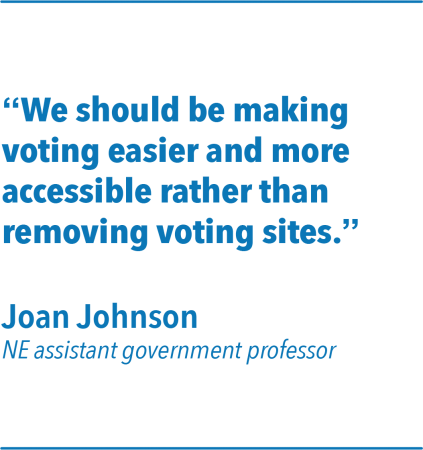
Elections administrator Heida Garcia told media outlets that keeping sites open full-time to comply with the new state law could come at an increased cost to the taxpayer, a feat that may be outside of the county’s budget.
The county has just allowed for $10 million for new voting machines.
During a meeting for the Commissioners Court, the general governing body of Tarrant County, Garcia said officials would have to sit down with the political parties and campuses in the county to have on-campus voting approved.
The county already has a list of 40 permanent early voting sites. It would have to be expanded to include college campuses.
Some county officials wanted to disavow reports that they had no plans of offering college voting sites.
“I am committed to making it easier to vote rather than more difficult,” Tarrant County Commissioner Devan Allen said through email.
After receiving numerous emails and phone calls from concerned citizens about the matter, she released a statement to the public.
“If not considering or eliminating our college and university campuses as polling locations leads to disenfranchising even one voter, it is more than worth our collective efforts and resources to finding a solution to including or maintaining these locations,” said Allen.
She told The Collegian that she has already been in discussions with SE president Bill Coppola about making SE available for voting in the upcoming elections, which she said he supports.
But the final decision about which sites will serve as voting centers in the county will not be decided until 2020, according to Garcia.
“It is very disheartening to say the least,” said NE government and paralegal studies chair Joan Johnson. “We should be making voting easier and more accessible rather than removing voting sites.”
In 2018, Johnson helped register nearly 400 voters at TCC in an effort to increase voter turnout among students. She stressed that on-campus voting sites solve the difficulty of finding time to vote for students.
“I remember when I was going to college that I was ridiculously busy,” she said. “To have early voting on campus was extremely beneficial to students, faculty and staff members because it was so close and it made voting so easy, especially when you are trying to fit that into a hectic day.”
National and Texas Democrats are suing the state, alleging that the new law disenfranchises young voters ahead of the 2020 election, according to the Fort Worth Star-Telegram.
According to the 2018 census bureau website, voter turnout among 18- to 29-year-olds increased 79% when compared to 2014. Democrats claim HB 1888 is unconstitutional because it targets those young voters.
TR Campus director of academic affairs Tara Firmin said other options, such as “Walk the Vote” wherein campus officials escort students to the nearest polling location, will be offered if on-campus voting is not available.






















